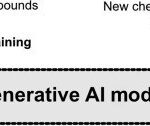Facing a cancer diagnosis is life-altering, and amidst the medical appointments and treatments, it’s easy to overlook other important aspects of your life, such as your car insurance and driving license. It’s natural to wonder, “Will my car insurance be affected by my cancer diagnosis?” The answer isn’t always straightforward, and depends on several factors, primarily whether your condition impacts your ability to drive safely. This article aims to clarify your responsibilities to both the Driver and Vehicle Licensing Agency (DVLA) and your car insurance provider following a cancer diagnosis.
Your Duty to Inform the DVLA About Cancer and Driving
In the UK, the DVLA needs to be informed about any medical condition that could affect your driving. While a cancer diagnosis itself doesn’t automatically mean you need to notify them, certain circumstances do require you to disclose your condition. You are legally obligated to tell the DVLA if:
- Neurological Issues Develop: If your cancer or its treatment leads to problems with your brain or nervous system that could impair your driving ability.
- Medical Advice Against Driving: If your doctor, oncologist, or healthcare team advises you that you may no longer be fit to drive, either temporarily or permanently.
- Driving Restrictions Imposed: If you are restricted to driving only certain types of vehicles, or vehicles that have been specifically adapted for your needs due to your health condition.
- Medication Side Effects: If your cancer medication causes side effects that could compromise your driving skills, such as drowsiness, impaired concentration, or blurred vision.
Failing to inform the DVLA about a relevant medical condition is a serious offense. You could face a fine of up to £1,000, and in the unfortunate event of an accident, you could be prosecuted if the condition was a contributing factor.
Brain Tumors and Driving: A Specific Consideration
Brain tumors warrant special attention when it comes to driving. Due to their potential to directly affect cognitive and motor functions, the DVLA must be notified if you are diagnosed with a brain tumor. The restrictions on driving will vary depending on:
- Type of Tumor: The specific type of brain tumor and its characteristics.
- Tumor Location: Where the tumor is situated within the brain, as different areas control different functions.
- Side Effects: Whether you experience side effects such as seizures (fits) as a result of the tumor or its treatment.
- Treatment Type: The course of treatment you are undergoing, including surgery, radiotherapy, or chemotherapy.
- Vehicle Type: The type of vehicle you drive, as regulations may differ for different vehicle categories.
It’s likely that driving will be restricted for a period following a brain tumor diagnosis and during treatment. The DVLA will assess each case individually to determine driving fitness.
Driving After Cancer Treatment: What to Consider
Many cancer treatments allow you to drive afterward without issue. However, it’s crucial to be aware that some cancer medications can induce side effects that make driving unsafe. Common side effects like nausea, fatigue, and drowsiness can significantly impair your ability to drive. Certain medications can also cause dizziness or reduced reaction times.
Always consult with your healthcare team about the potential side effects of your cancer treatment and how they might affect your driving. They can provide personalized advice based on your specific medications and overall health. It’s always better to err on the side of caution and avoid driving if you feel unwell or are experiencing side effects that could compromise your driving ability.
Short-Term Driving Licenses and Insurance Implications
For medical conditions that are progressive or fluctuating, the DVLA may issue a short-term driving license. These licenses are valid for shorter periods, typically 1, 2, 3, or 5 years, and can be renewed upon submission of a medical report.
Importantly, a short-term license is still considered a full driving license. Insurance companies are not permitted to use a short-term license as justification for:
- Increased Premiums: Raising your car insurance costs solely because you hold a short-term license.
- Higher Excess: Increasing the excess you are required to pay in the event of a claim.
- Coverage Refusal: Denying you car insurance coverage based solely on the grounds of a short-term license.
Informing Your Car Insurance Company About Cancer
Most car insurance providers require you to inform them of any changes to your medical condition that have occurred since you took out your policy. While you might be hesitant, disclosing your diagnosis is essential. Failure to inform your insurer could invalidate your policy, meaning they could refuse to pay out on a claim should you need to make one.
Crucially, if your doctor advises you not to drive, you must inform your car insurance company. While your premiums might increase, or in more serious cases, your insurance could be refused, insurers are bound by anti-discrimination laws. They must be able to demonstrate a genuine increased risk to justify raising your premium or refusing coverage. Simply having a cancer diagnosis is not, in itself, grounds for increased premiums or refusal. The increased risk must be directly related to your ability to drive safely, as assessed by medical professionals and potentially the DVLA.
Contacting the DVLA for Health and Driving Queries
If you are unsure about whether your cancer diagnosis or treatment affects your driving, or if you have any questions regarding medical conditions and driving licenses, you can contact the DVLA directly for guidance.
DVLA Medical Enquiries
Phone: 0300 790 6801
Opening hours: Monday to Friday 8am to 7pm, and Saturday 8am to 2pm
Being transparent with both the DVLA and your car insurance provider is vital when you have a cancer diagnosis that could potentially impact your driving. Prioritizing safety and understanding your obligations ensures you remain legally compliant and appropriately insured, giving you peace of mind during a challenging time.

